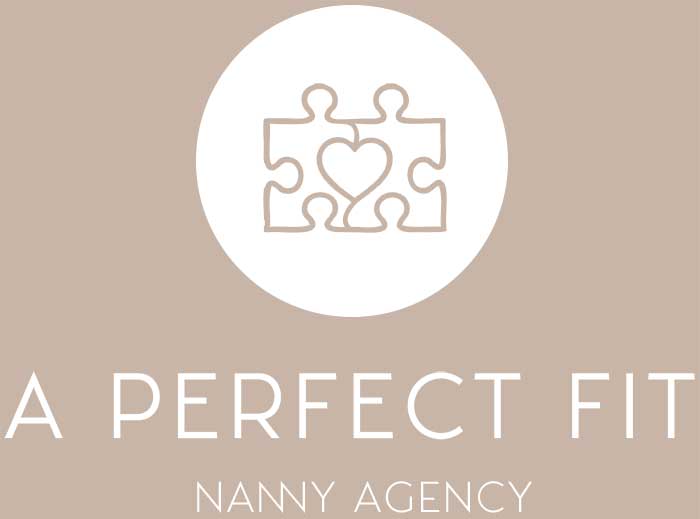Can Your Nanny Take Your Child to the Doctor?

When it comes to your child’s health, nothing is more important than making sure they’re getting the medical care they need. Because of this, a typical question that gets asked a lot in the world of childcare services regarding healthcare is: can a nanny take my child to the doctor? Basically there’s no simple answer to this, and is generally taken on a case-by-case basis. Similar to making the decision on whether or not to take your nanny on vacation with your family, there’s many things to consider before making this decision. For our purposes, we will break down this question in regards to both emergency and non-emergency visits, and then we will discuss the different types of doctor visits, and if it’s appropriate or even possible for your nanny to take your child to different healthcare practices. There are also steps families can take to prepare for this occurrence in both emergency and non-emergency situations.
Emergency Situations
In the event of a serious health emergency, the emergency room staff will absolutely do whatever it takes to make sure to reduce the risk and give a child the immediate care they need. Therefore, there’s not much families can do to prepare for the event of an emergency. But take comfort in the fact that doctors and nurses take their jobs extremely seriously and know that making sure a child is safe and healthy is of supreme importance over any other kind of administrative details. That said, it is of course best to have a legal parent or guardian nearby, or at least over the phone, to make sure to get appropriate permissions before engaging with any serious medical procedures. In the event of an emergency it is important your nanny knows the best contact to reach you, and that you stay reachable as much as possible while a caretaker is watching after your children. This is because they might be limited in their ability to work with hospital staff to give any kind of guidance or permissions for surgery, for instance. However, again – the hospital staff knows what they’re doing and will always do what’s best for the patient in the event of an emergency, so try not to worry.
Non-emergency Situations
Non-emergency situations include things like standard or routine doctor or other medical service provider visits. This can include things like going to a general pediatrician, dentist, optometrist, or orthodontist. It’s understandable that families would prefer if their nannies can handle transportation for children to appointments such as these, as they can be time consuming for busy families. For non-emergency situations, the visits are more case-by-case dependent. Say, for instance, that your child has braces and needs a routine adjustment appointment with their orthodontist. This might be a situation where, depending on your agreement with your family’s chosen orthodontist, a nanny can easily take a child in for such an appointment in which more serious medical procedures that require the presence of a child’s legal guardian or parent is unlikely. Similarly, a routine optometrist appointment would be a highly unlikely place for any sort of serious medical needs are likely to pop up, and these types of appointments are also a great candidate for having a nanny handle transport and guidance for your child. However, in any case it is always best to call ahead to your medical service provider at any practice and ask them how they prefer to handle the situation. Especially for long-time patients who know the office and specialist well, it’s likely that the practice would feel comfortable with the family’s nanny being the responsible adult present for the appointment in lieu of the child’s actual parent or guardian. If the office of the practice insists on the parent or legal guardian being there for an appointment with a minor, however, it’s important that families follow that rule – as there’s likely a good reason why the office prefers to have someone with more legally-binding responsibility over the child to be present during the visit. It could also depend on the medical history of your child as well. In the example of the orthodontist appointment, something like a broken bracket in need of repair, especially on a child who has broken many brackets for instance, is more likely going to need the presence of a responsible legal guardian or parent than the child’s caregiver. There are limits to the legally binding responsibilities of a nanny or caregiver.
Another thing to take into account is the financial aspect to attending an appointment. For instance, it’s important to ask yourself before the upcoming appointment: do I have any outstanding balances with this medical service provider before sending the nanny and child there for an appointment. Also, it’s important to know if there will be a routine copay associated with the visit based on your family’s medical coverage, and to have that extra amount of money ready for the nanny or caregiver to pay on behalf of the family either in cash or arranged separately prior to the visit so that the nanny doesn’t get stuck in the uncomfortable position of being asked to settle an outstanding balance to the office.
Another thing to take into consideration when deciding if it’s a good idea to allow your nanny to take your child to the doctor, or other medical professional, on your behalf is factoring in the emotional well-being of your child when it comes to this particular visit. For instance, is this a routine check-up that your child is comfortable with? Is this possibly the result of the onset of a new sickness your child hasn’t experienced yet and might have some anxiety with? Many kids are afraid of the dentist, for instance – is this something that your child struggles with and might need the presence of their parent to help them emotionally navigate the stress of the visit? Only a parent can truly make the best decision and judgment call for their own children, which is why it’s important to ask yourself questions such as these prior to allowing your child to go to the appointment with the nanny. Lastly, of course taking in consideration the age of the child and if they’re old enough to handle going to the doctor’s office without a parent is an important factor to think about before sending them with the nanny.
Steps to Prepare
In addition to calling ahead to your medical office to see what their policy is on nannies bringing your child, there are also several other steps families can take to ensure that the process goes smoothly. The particular office might have a standard protocol explicitly for this purpose, and it might include a signed medical consent form or a limited power of attorney. These are more formal arrangements that should be considered if you’re planning on having your nanny or caretaker take your child to the doctor, or other medical service provider, more routinely. A signed medical consent form might just cover that specific visit, and the office you reach out to might have a version of their own that they send to you, the parent, to fill out on behalf of your child prior to the appointment. It’s important to ask for such a document beforehand so that you’re not scrambling to get it filled out before your child can receive care. Also, in case you have a lawyer that you’d like to take a look at any kind of form you sign before-hand, it’s also important that you receive the form with adequate time before the appointment to have your lawyer take a look at it. For more ongoing or routine visits in which you’d prefer the nanny or caregiver have a bit more decision-making power and you see this as a longer-term solution, your family also might want to consider extending a limited power of attorney designation to your nanny. This would enable you to reduce the frequency of having to fill out a new signed medical consent form for each visit, and can make sure that everyone involved feels a bit more comfortable legally knowing that the adult present does have a bit more legal permission for the child in the event of an emergency, for instance. If your family decides to go this route, it’s very important that you speak to your nanny or caregiver about it first and make sure that they feel comfortable with this additional legal responsibility. You might also want to consider raising their rate in this case as well, since they’re taking on more ongoing legal and medical responsibility for your child. Additionally, if your family chooses to go this route you will definitely need to get started on the process well before your child’s scheduled appointment, as legal matters need to proceed with care and attention to detail, and you don’t want to put your nanny or caregiver in an uncomfortable situation by rushing them to sign something like a power of attorney without giving them adequate time to consult with their own legal advisors first, for instance.
Overall, there are several factors to consider before sending your child to the doctor with a nanny, and it’s important to explore all of them to make the decision for yourself. Ultimately, you’re the parent and know what’s best for your child and your household. You’re also an employer and owe a responsibility of care to your employee to make sure they feel comfortable with the responsibilities being placed upon them. We here at A Perfect Fit Nanny want to make sure you always have the resources and information available to you to make the best decisions for your family. Feel free to browse our service offerings for your family, and let us know if we can help!











